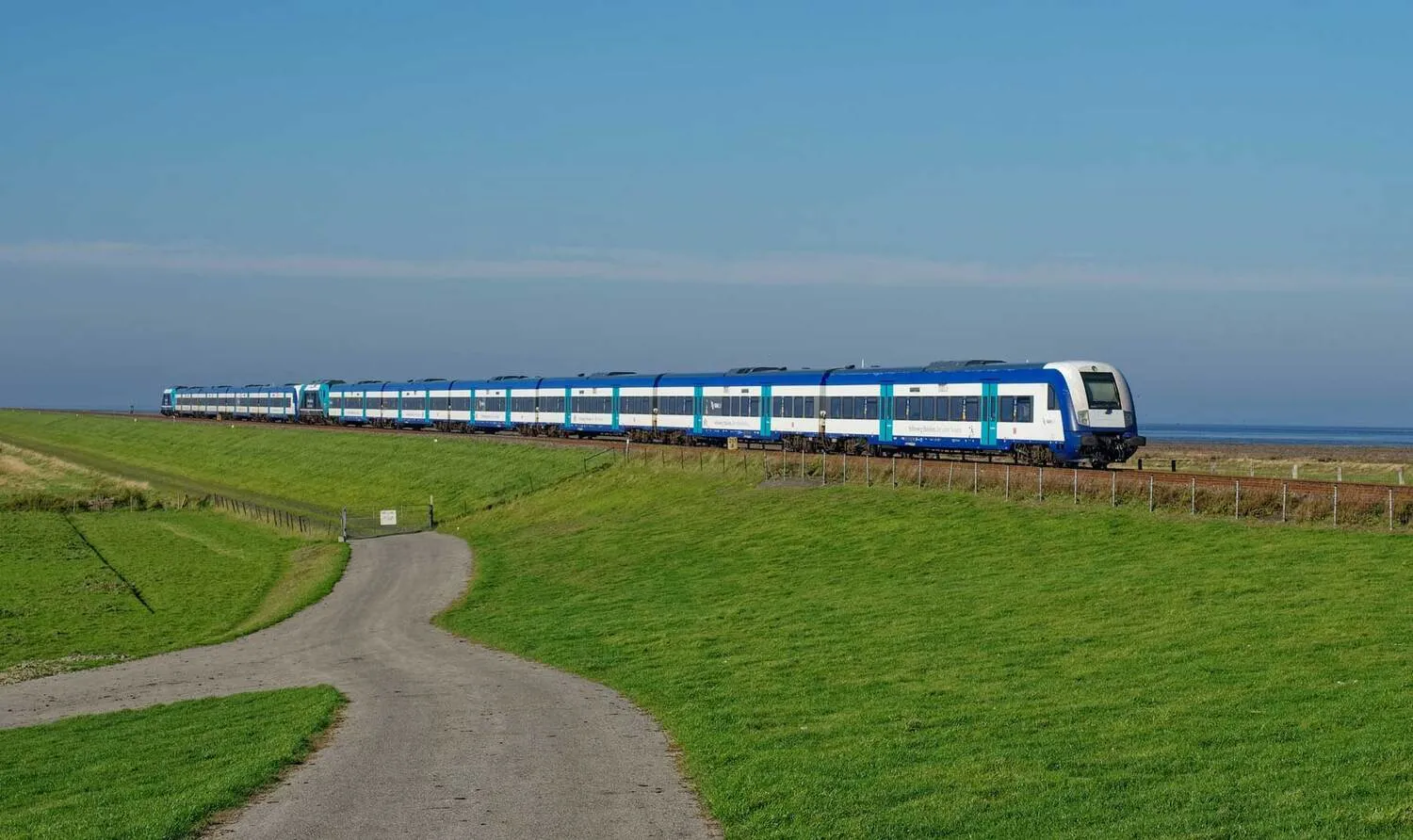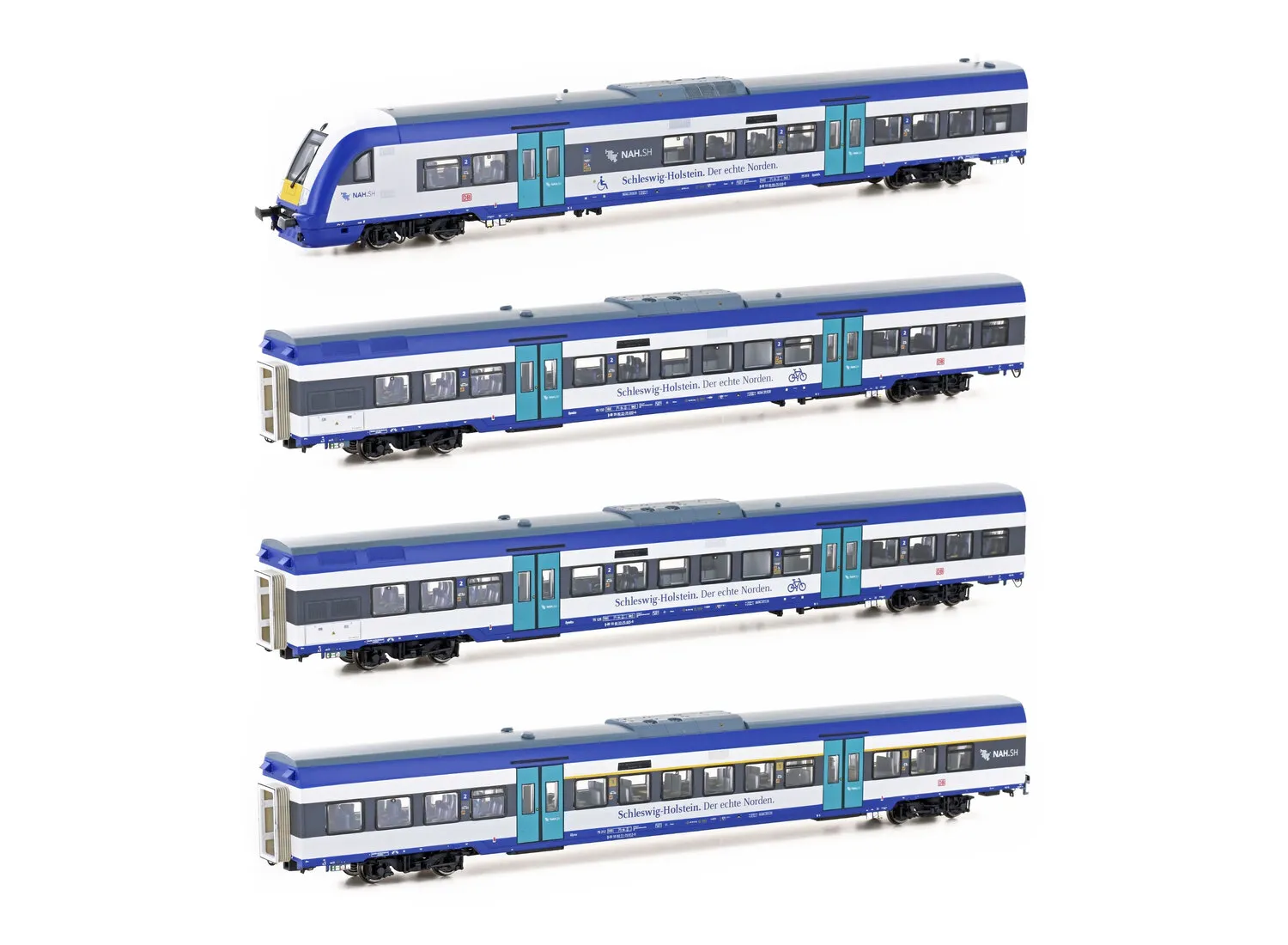DB Regio Schleswig-Holstein set

The prototype
After the traffic tender for the so-called "Marschbahn" Hamburg – Westerland(Sylt) line was won by Connex subsidiary Nord-Ostsee-Bahn, new vehicles had to be procured. Due to the high number of passengers, especially in the summer season on this touristically and commuter significant line, conventional diesel multiple units were not suitable for operation on the mostly non-electrified route. The capacities would not have been sufficient. Initially, Talgo trains were considered, but ultimately the decision was made for so-called "Married-Pair cars" manufactured by Bombardier. These are based on the well-known double-deck cars and were produced in this form for the first time. What is special about these cars is that they can only operate in pairs, hence being 'married' to each other. One car houses the electrical equipment, which powers the neighboring car. The smallest basic unit is a four-car train ("Viererpark"), consisting of a control car, two middle cars (with facilities for power supply and toilet), and the end car with 1st and 2nd class sections. In regular operation, two additional middle cars are added to form a six-car unit ("Sechserpark"), known as the "Marschbahnpark". Nord-Ostsee-Bahn always operated the cars in combination and numbered their 15 complete trains consecutively. Thus, one finds the inscription "MB" for "Marschbahnpark" followed by a number on the car ends. And this is still the case today with DB Regio Schleswig-Holstein. To cope with the rush of vacationers during the holiday season, the four-car trains were used in addition to the six-car parks, creating ten-car formations. Usually, the locomotive ran in the middle of the train. The four-car parks, matching the respective six-car parks, will also be released. Meanwhile, due to further increased demand, so-called twelve-car parks are being formed, where two six-part units are coupled together.
The Model
The model is executed with prototypical accuracy in both exterior and interior design, following the current livery of DB Regio Schleswig-Holstein. The control car features a yellow bib. The inscriptions are prototypically accurate and sharply printed. Many individually attached details, some as etched metal parts, create an even more delicate effect. The bogies come with metal bearing pans for the wheelset intake, and the power pickup for the interior lighting is brushless, ensuring very good rolling characteristics. Built-in LED interior lighting is functional both digitally and analogically, providing flicker-free, constant illumination (new design), and backlit destination displays. The connection between two cars is made using the supplied coupling rods. However, standard short couplings according to NEM standards can also be used. The end or control car is connected to the locomotive using a standard coupling or NEM standard short coupling.
Additional set available: Arndt Spezial-Modelle 597004 / 597104
First announced: January 2024
Recommended retail price: 437.00 €

2-rail (direct current - DC)

3-rail (alternating current - AC)

DCC (Digital)

Coupler standard pocket (NEM 362)

Coupler with close coupling cinematic

Interior LED lighting

With interior fittings
Recommended retail price: 437.00 €

2-rail (direct current - DC)

3-rail (alternating current - AC)

DCC (Digital)

Coupler standard pocket (NEM 362)

Coupler with close coupling cinematic

Interior LED lighting

With interior fittings
Discussion forum




